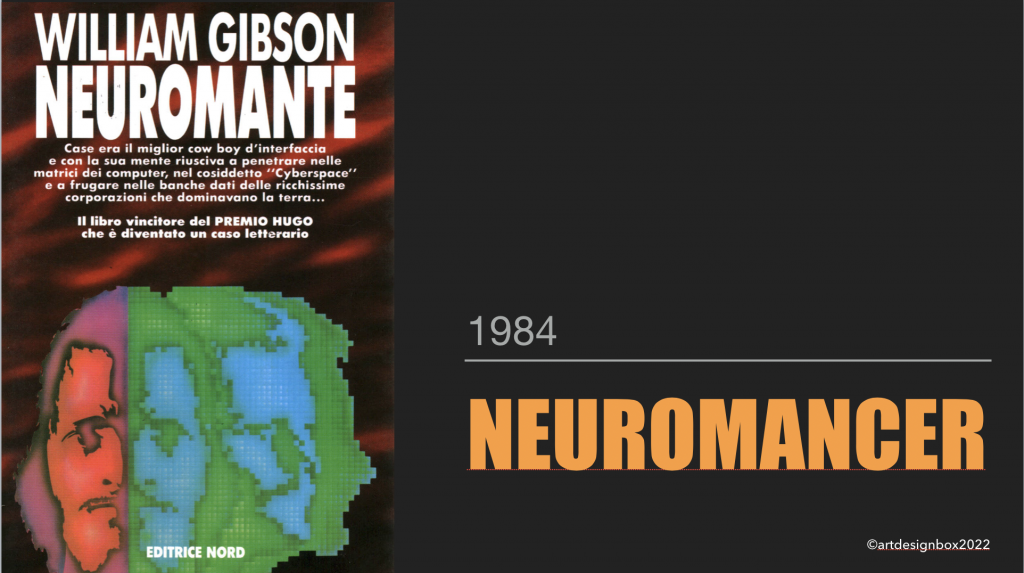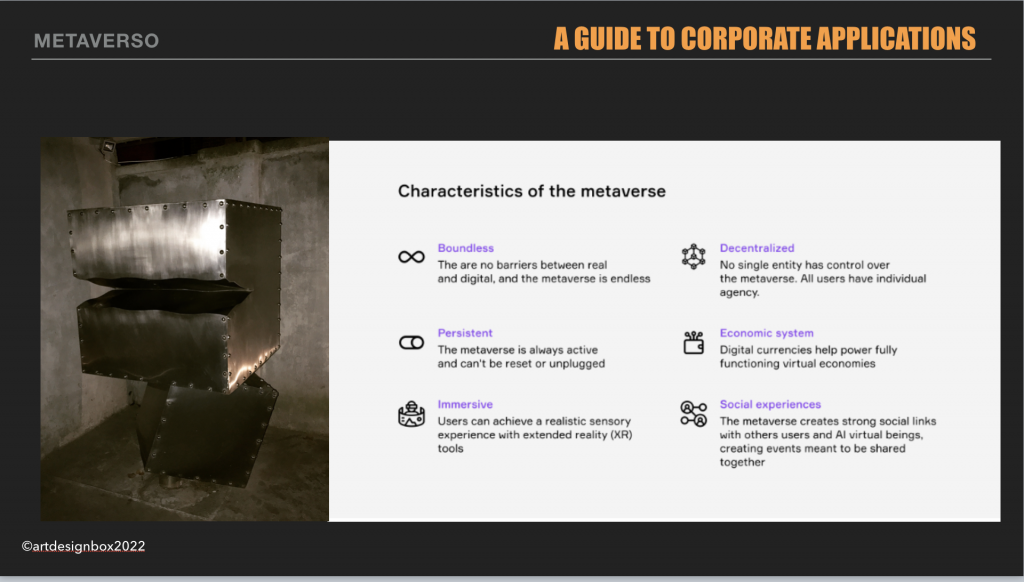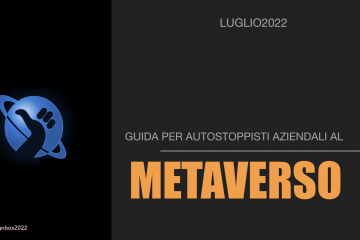“The sky above the harbor was of the color of a television tuned to a dead channel. "(William Gibson) This is how William Gibson, the father of cyberspace, typed on the keyboard of his laptop. Neuromancer, perhaps his most famous novel transported us in 1984 to a post Blade Runner world, made of synthetic drugs, shady Yakuza figures, tattoos and psychedelic inserts under the skin, escapes in the matrix, the visual representation of the new digital frontier that i post modern cowboys rode thanks to man-machine interconnections. From his intuition and his imagination a vision of the liquid and intangible future that awaited us was born. A thousand worlds, a thousand adventures, a new opportunity to escape from a reality that was beginning to hold tight to many, due to the changes taking place, driven by technology in an exponential and increasingly pervasive acceleration in the economy, in the organization of society, in the relationships between people.

He was followed years later, in 1992, by the writer Neal Stephenson who invented the term "Metaverse" in his novel Snow Crash and, as in many of his novels, dealt with history, linguistics, anthropology, archeology, religion, computer science, politics, cryptography, memetics. and philosophy. "In the Beginning ... was the Command Line", in his 1999 essay Stephenson later explained the novel's title as the term for a particular mode of software failure on early Macintosh computers: "When the computer froze and written nonsense words in the bitmap, the result was something that seemed vaguely static on a broken TV: a 'snow crash' ”. Decentralized finance, smart working and opportunities to socialize, the control of digital identities, would have come later and are still in place, but the road was drawn. Wade Watts alias "Parzival", the character from Steven Spielberg's Ready Player One 2021 film, confesses to his friend "Aech "'s Avatar that he fell in love with another feminine Avatar, as they meet in Oasis (Ontologically Anthropocentric Sensory Immersive Simulation), the world imagined by Ernest Cline in the 2010 novel Player One of which the film is the film adaptation and Aech admonishes him << ... listen to what you say, you have a cyber crush ... but you have to pay more attention to who you know on Oasis, maybe she is an uncle, or she could be a 130 kg guy who lives with his mom on the outskirts of Detroit… you have to think about it! >> reminding him that in virtual worlds everything is reality and fiction, game and experience at the same time, skillfully mixed by the co-creation of the mind of the creators of the worlds and by the personal expression of the participants themselves in their digital extension with which they contribute to building their form and substance with the basic assumption that everything is constantly changing. The issue of digital identity is not only the prerogative of conspiracy theorists who see (rightly or wrongly) in the acceleration of the management and control of personal information of individuals, the danger of a tool in the hands of governments to "Chineseize" society, but it is also a very topical topic of analysis and discussion for sociologists and anthropologists. And do not think that it is a theme that does not concern us directly. ... In short, the concept of Metaverse comes from afar. Or rather the Metaverso. And it has its own very specific rules:

And let me free borrowing Marvel's recent beautiful movie Doctor Strange in the multiverse of madness by stating that the Metaverse is now preparing to become a Multiverse. But this is bread for the readers of our essay "Guide for corporate hitchhikers." Would you like to know more? Are you interested in a presentation? For more information: mailto: sergiobattimiello@artdesignbox.it


